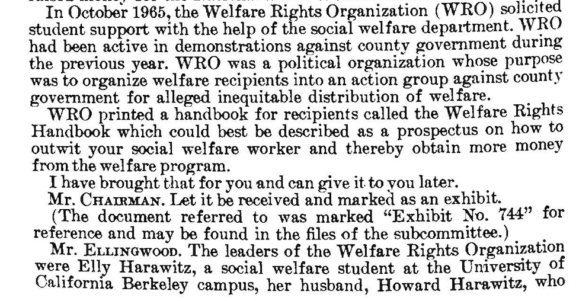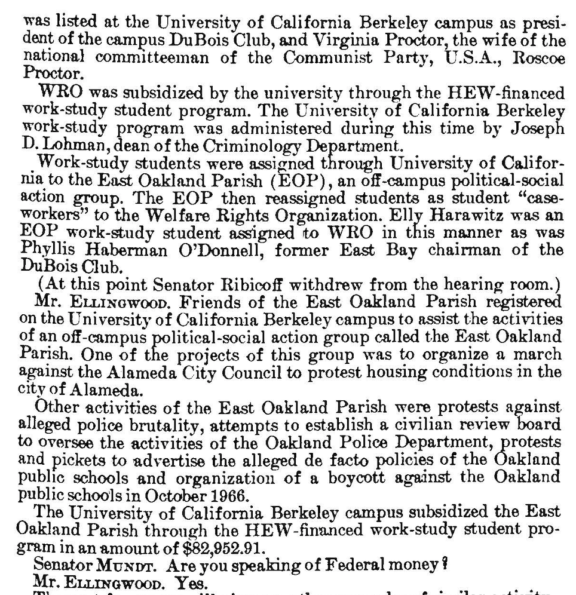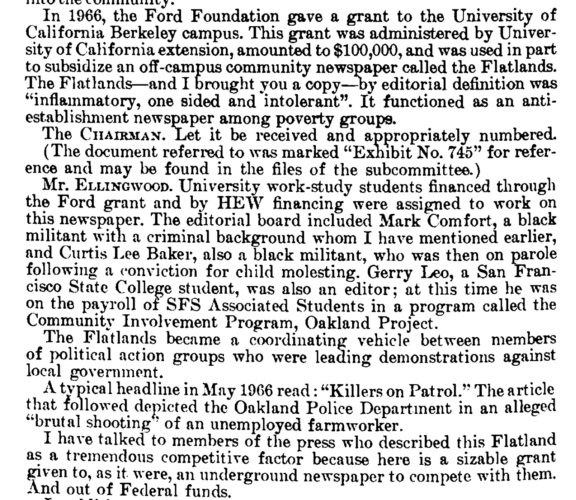Summoned to testify at the Senate Subcommittee on “Riots, Civil and Criminal Disorders” in July 1969, Governor Reagan’s legal aide Herbert Ellingwood gave a scathing account of the havoc unleashed by UC Berkeley-affiliated radicals. The conservative Ellingwood found a receptive audience in the Chair of the Subcommittee, segregationist Senator John McClellan (Arkansas).
In the middle of his fifty pages of testimony, Ellingwood turned to The Flatlands as an example of the interconnections between campus and off-campus radicalism.
Though Ellingwood’s testimony was filtered through the prism of right-wing paranoia, it also helpfully traces — for the historian — some of the linkages between students in UC Berkeley’s School of Social Welfare and anti-poverty activists based in Oakland.
For instance, Elly Harawitz, a student at the School of Social Welfare, is named as the leader of Berkeley’s Welfare Rights Organization (WRO), along with her husband Howard Harawitz, the leader of the campus DuBois Club. The activities of the WRO were often chronicled in the pages of The Flatlands, and Howard Harawitz’s photographs were frequently found there as well. Likewise, Ellingwood suggests that the East Oakland Parish program — whose activism was often covered in The Flatlands — was the crucial organizational hub, assigning work-study students from Cal to work for the WRO.


